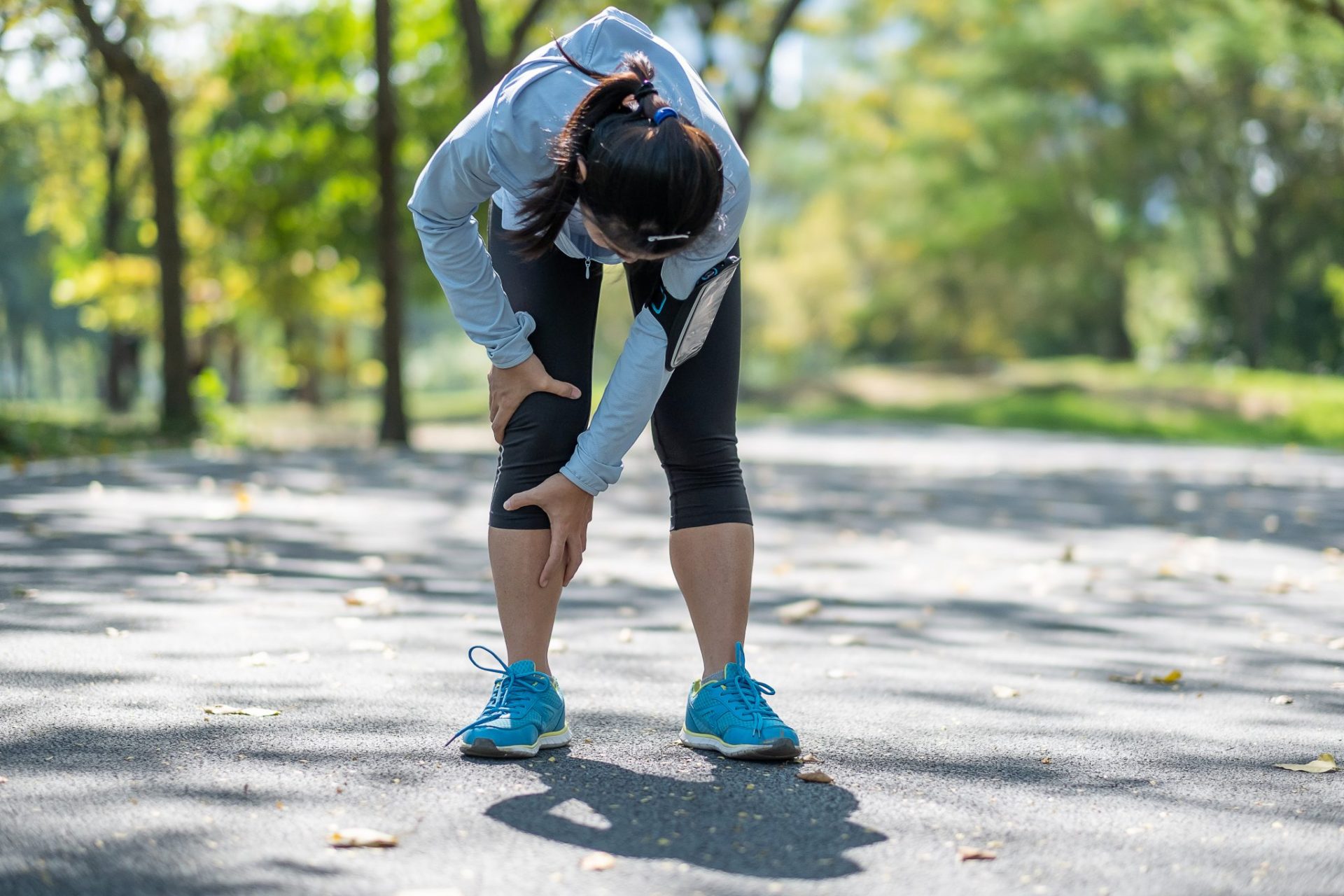Feeling stressed? Here’s how that might affect your exercise plans

It’s not just gym closures that are impacting your workouts right now. We asked the experts to explain how stress has a big role to play in your exercise routine.
Things are stressful right now. Whether it’s family life, lockdown or elections that are causing the overwhelm, we’re all feeling it. But while we often talk about how to manage work/life boundaries, or whether it’s time to ditch stress-enducing friends, we don’t talk very much about managing stress alongside our exercise routine.
Perhaps that’s because exercise is touted as a stress reliever. But we need to remember that, like every other aspect of our life, how we feel going into our training will impact the result. “I define stress as an additional load that is imposed on the body – be that physical or cognitive,” says Chris Braid, strength and conditioning coach at Loughborough Sport. “In a physical sense, we have a training session and we provide an opportunity that allows them to rest recover from that. But there are components that we impose on the bodies that impact the applicability to recover that aren’t to do with our training itself.”
You may also like
What are the benefits of exercise on stress?
This is called the ‘psychometric impact’ of training – it’s all about how our brains and bodies are connected. You might think of it as a tank: usually, our stress tank is half-full, leaving room for stress to spike during training and then return back to normal, or even lower, afterwards. But when our stress tank is already close to overflowing, our bodies can’t hold the extra impact of exercise.
Bekah Walton, an athlete from Loughborough Sport who competes in javelin throwing knows this all too well. “Managing my degree, my training and lockdown massively impacted my motivation,” explains Bekah.

But it is not just athletes who can be impacted by this. “In Covid times, the job uncertainty, standard of living, being at home and not sleeping well are all additional stresses. You might be noticing little niggles or even injuries despite the fact that you think your training has remained the same or even reduced,” says Chris.
You wouldn’t be alone if you did: during the first six weeks of lockdown one, Google searches for knee pain increased 471% and sprained ankle queries were up by 267%, according to fitness app fit4thefight. Pulled muscle-related searches were also up by 80%. “All of this is to do with the psychological components that impact the physical,” Chris explains.
You may also like
How to warm up before running: do these dynamic stretches to avoid injury
A study by Yale School of Medicine shows that people take longer to recover from physical stress when they are already dealing with mental stress, “demonstrating that chronic mental stress has a measurable impact on the rate of functional muscle recovery from strenuous resistance training.”
The study showed that those who were experiencing higher loads of mental stress also felt more sore and fatigued after exercise, linking muscular recovery and your immune system “to a variety of lifestyle and behavioural factors. Sleep hygiene, proper nutrition, social support, and recreation are just a few variables” that are impacted by both – when we are stressed we sleep less, but to recover we need more. Similarly, when we are stressed we might drink more, but this inhibits recovery. “These things create even more stress on the body, reducing the ability to recover,” explains Chris.
Realising this now is particularly important, given that our brains are taking on more stress than ever. It’s no wonder you might feel lacking in motivation, strength or fitness. And if your answer is simply ‘just push through’, you’ll end up doing more harm than good. While exercise can help you beat stress, training on under recovered muscles means no time for adaptation, which will lead to even more injuries, and you’ll be out for the count.

How to exercise during periods of stress
It doesn’t mean stop exercising altogether, rather it means be mindful of what and how you exercise.
How to exercise during periods of stress
Build up slowly
You need to give your body time to adapt to training. This is particularly true if you are new to exercise, so don’t jump straight in to daily workouts if you’ve never exercised before. Your body needs to understand how to deal with this new stress, particularly if you’re already under mental load.
Allow longer recovery periods
Regardless of how long you’ve been training, more stress means more rest. One or two rest days a week is a minimum requirement, but it’s particularly important to leave a few days between training body parts, says Chris.
Find novel ways of exercising
We’ve already established that exercise is a stress on the body, but it shouldn’t ever become a mental stress. That means doing exercise that you enjoy rather than exercise that you’re forcing your body into. This could also mean reframing exercise: walks, yoga and dancing all count as movement and might be less demanding on your body right now.
Celebrate the small wins
While the message of productivity has been shared loud and clear during lockdowns, it’s important to remember that being at home doesn’t mean we have extra time to spend on ourselves. “I had to take away a lot of the expectations I would usually have for myself and simply celebrate the little things,” says Bekah. “My plan was simply to make sure that I was actually giving myself a break, because if I wasn’t then I got in a cycle of not feeling great, continuing to push it, feeling even worse, and getting stuck in a cycle.”
Stop trying to improve
Being OK with simply maintaining a good level of fitness rather than striving to come out of lockdown better than before is important. For Bekah, that meant she could take the pressure off and focus on the things that she’s less good at that she could work on from home. Perhaps use this time to think about the often-neglected aspects of fitness such as flexibility and mobility rather than trying to get stronger or faster.
Follow @StrongWomenUK on Instagram for the latest workouts, delicious recipes and motivation from your favourite fitness experts.
Images: Getty
Source: Read Full Article